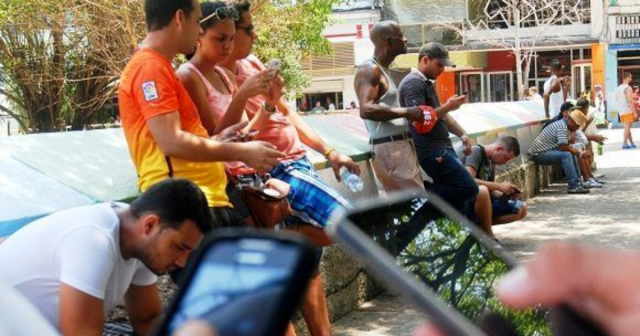The Cuban government continues determined to connect to Florida by submarine cable, although the US authorities rejected the request to carry out direct installation between the Caribbean nation and that country, arguing "risks to national security" and "a counterintelligence threat."
This Thursday, Cuban Foreign Minister Bruno Rodríguez Parrilla insisted that the connection between both regions would be a "positive step" that would expand Cubans' "access" to the internet, he wrote on his Twitter account.
"Denying it contradicts the position stated by the US government in May 2022," said the official, although on November 30 the US Department of Justice recommended that the Federal Communications Commission (FCC) deny the permit. requested by the ARCOS-1 USA Inc. system for the installation of an underwater telecommunications cable that would connect the United States territory with Cuba.
Since the publication of the US government's resolution, the chancellor has protested the denial of the license for the submarine cable, alleging that the "excuse" - the designation of Cuba as a state sponsor of terrorism - was "absurd and dishonest" and continued to be used to "cause harm to the Cuban people."
The US government argued that there are "risks to national security" and "a counterintelligence threat" if the cable is installed.
The authorities warned that they did not accept the placement of the circuit because the cable landing system in Cuba would be property of the communications magnate in Cuba: ETECSA.
In the opinion of the US government, this would mean that the Cuban State "could access confidential US data that passes through the new cable segment through its control of ETECSA", but the statement was not liked by the Cuban regime, which continues insisting on connectivity.
The US ARCOS-1 system, which connects that country with 15 in Latin America - such as Venezuela, Colombia, Panama, Nicaragua and Mexico - intended to be expanded to a landing station in Cojímar, in the Habana del Este municipality.
Days after the installation refusal occurred, the Cuban government announced that the Cuban Telecommunications Company S.A. (ETECSA) and the French company Orange S.A. installation work began of an underwater cable to bring internet to Cuba from the island of Martinique.
With the Arimao Project, an underwater fiber optic cable would be connected from the island of Martinique (overseas territory of France) to “expand international connectivity” for Cuban Internet users.
The island's government would thus diversify its international connectivity, since until now the only route of this type, which is the ALBA 1, by agreement between Cuba and Venezuela. The link would have arrived in Cuba in 2011 but it did not begin operations in 2013 due to errors in its operation.
What do you think?
COMMENTFiled in:
